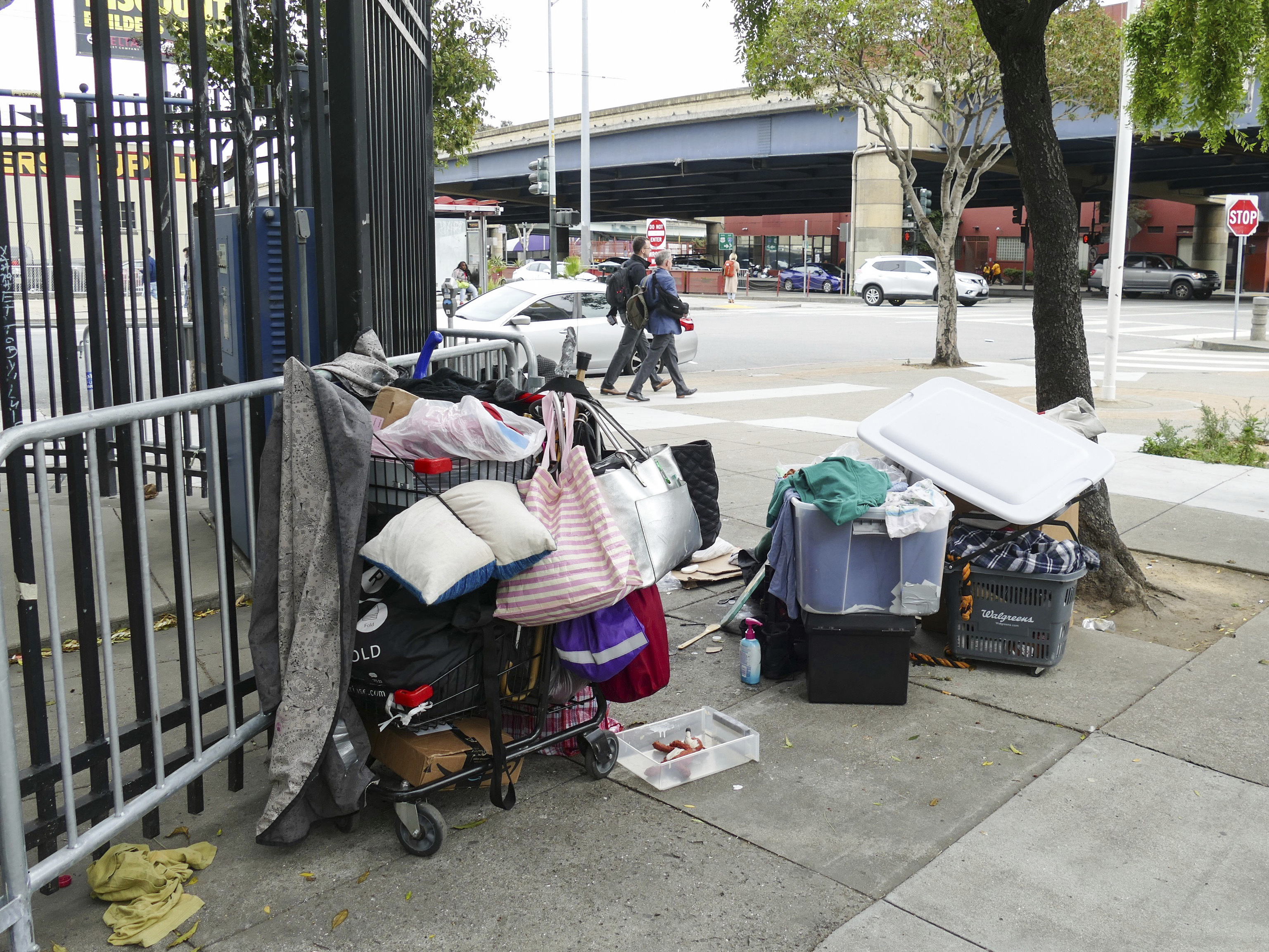Some San Franciscans Are Trying to Get Rid of Homeless People with Boulders. Here’s How That’s Going.

Credit to Author: Emma Ockerman| Date: Mon, 30 Sep 2019 19:00:55 +0000
UPDATED Sept. 30, 2:05 p.m.: Residents of the neighborhood have since asked the city to remove the boulders, according to the San Francisco Chronicle, saying they were being targeted by anti-boulder opponents. The city announced Monday that the boulders will soon be moved.
Original story: Some well-to-do San Franciscans trying to stop homeless people from sleeping in their neighborhood decided to invest in 24 large boulders to block a stretch of sidewalk.
It’s not going too well.
The boulders first appeared on the sidewalk about two weeks ago, bringing with them a hint of mystery and a lot of outrage. (Some activists thought the city had purchased the large rocks, but neighbors stepped forward to say they'd banded together to raise nearly $2,000 for the boulders, which they saw as necessary. The city says the rocks are legal and won’t remove them.)
"You're looking at a turf war one night. It got to the point where everybody was just done,” one anonymous boulder-bringer told KGO, a local ABC affiliate. “People had knives and guns and people were out fighting, carrying on, and waking up people in the neighborhood."
But instead of helping settle anything, the boulders have caused activists and neighbors to go to war. Some activists see the boulders as representative of San Francisco’s disdain for the poor, and have pushed the rocks into the street at least three times in the past week, according to SFist.
READ: Los Angeles might start punishing homeless people depending on where they sleep
“It’s unfortunate that people are pushing them off the sidewalk and onto the road. It’s not a safe thing to do,” Rachel Gordon, a spokesperson for the city’s department of public works, told the San Francisco Chronicle. Every time the rocks get pushed into the road, city employees place them back on the sidewalk.
But they might not be there very long.
One artist listed the rocks for free on Craigslist last week, inviting people to come pick them up. KPIX-5, the local CBS affiliate, has dubbed these events the “boulder battle.”
San Francisco's situation is one of the nation’s worst examples of unchecked, rising rents and vast wealth disparity. (Rents there have begun to stabilize, but there’s still a dire lack of affordable housing.) As a result, its homeless population has swelled to about 9,800 — an increase of 30 percent since 2017. The Bay Area also lacks adequate shelter beds to house all of its homeless people, and residents have repeatedly attempted to block any new potential shelters.
The current boulder battle isn't the first time the city has attempted to use boulders to prevent campsites: A photo of a rainbow-colored “pride” boulder in San Francisco meant to deter the homeless even went viral in June. There've been other forms of so-called “hostile architecture,” too, like ledges with spikes or sharp bars to prevent people from lying down. A Catholic church in San Francisco even made national headlines in 2015 after it installed sprinklers above its doors to soak homeless people who sought refuge there.
Hostility toward the homeless goes beyond the neighborhood level. President Donald Trump, when visiting San Francisco earlier this month, commented that homeless people were ruining the city’s “best highways, our best streets, our best entrances to buildings.” His administration then told California it was violating environmental water quality standards, citing excrement from homeless people making its way into the Pacific Ocean.
“They have to clean it up,” Trump said of San Francisco. “We can’t have our cities going to hell.”
Cover: 10 May 2019, US, San Francisco: Homeless people have set up camp near the headquarters of Uber, Twitter and other tech companies. A homeless guy pushes a shopping cart with his belongings along Market Street. The Twitter headquarters is in the background. Photo by: Barbara Munker/picture-alliance/dpa/AP Images
This article originally appeared on VICE US.